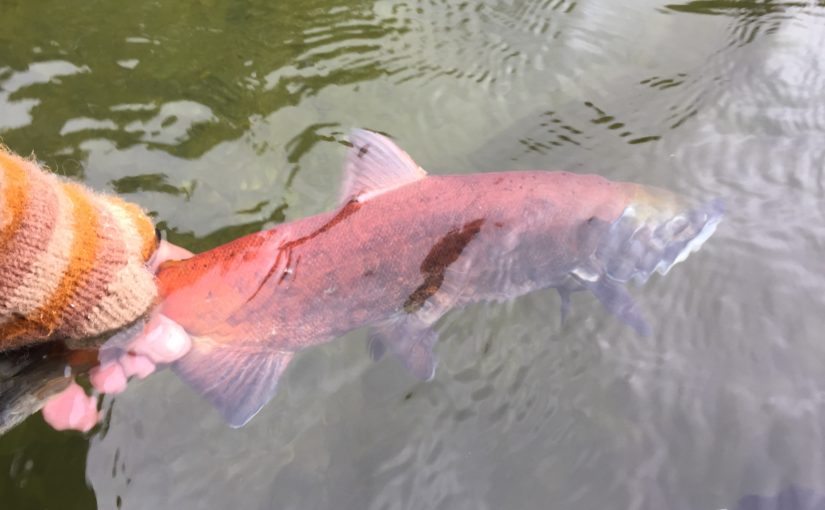Kokanee were a fish I had never caught, yet I had pondered for years. With no waters close by and only a few within a day’s drive, targeting this fish was a proposition full of questions and concerns. Most of these questions would have to be answered on the water, but the first had to be answered just to get the ball rolling.
Where and when to go? My friend and I chose a stocked lake. With little or no natural reproduction in this lake, fishing for spawners would have no impact on a future year class. With ethics out of the way, this would be an autumn trip for sure. We were not interested in eating them, so the condition of the meat was not a factor. The sight fishing aspect and spawning colors are awesome.
The next question was more of a concern. Would we catch anything if this kokanee thing was a bust? We were heading into unknown waters – quite literally. Neither of us had fished anywhere near this lake before. Fishing is never a lock. Some pre-trip research on the fishing options in that area allowed us to drive through the night and arrive at dawn with confidence high.
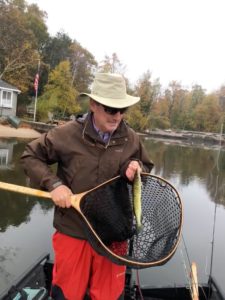
Would we succeed in catching a kokanee? Hell yeah, we did! It did not take us long to locate fish. Once we found them, we were on the salmon board within minutes.
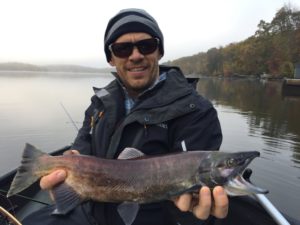
The next question: do they actually bite the fly or are we just “flossing”? They are filter feeders, after all. Add in the fact that they cease feeding when their focus turns to spawning. I had some doubt. I was going to have to see it myself.
The answer was as clear as the water. They didn’t hit every cast. In fact, they didn’t hit the majority of the presentations. When they did bite, it was obvious that they meant it. Whether it was predatory reflex or protecting their redds or whatever, they absolutely did strike our offerings.
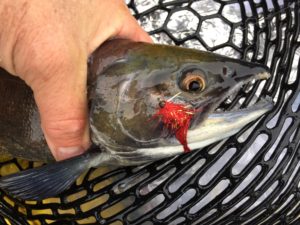
Questioning success: what do we do if we drive all this way and catch what we were looking for as soon as we start? Do we hammer the same nail all day? Do we call it early and jump right back in the car?
As it turned out, we started with lemonade, it turned to lemons, and we turned it back into lemonade. We met our primary goals early, so when some jackass in an inflatable boat intolerably crowded our spot, we didn’t react negatively. We took this as a sign to move on and finish exploring the lake.
We broke out the Northkill Tackle spinning rods for efficiency, and covered some water. We found a solid population of brown and rainbow trout willing to take our lures. The trout would have been an acceptable safety net had the kokanee not come through. Nice to know for the future.
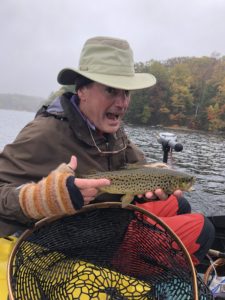
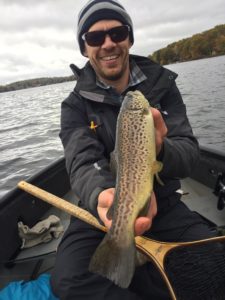
Questioning some details: would any of my “go to” spinning tactics appeal to kokanee? Based on our morning observations, most would have fallen short. Brightly colored 2.8″ Hawg Shads did seem like a promising lure choice – and they were. The kokanee hit them quite well. Hawg Shads never cease to amaze me with their multi-species versatility.
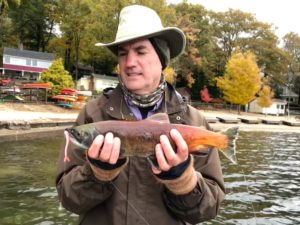
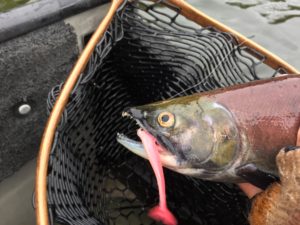
Just how long was this day going to be? We assumed from the start it was going to be a long one. Logistics made that obvious. We had success on multiple species with multiple techniques under our belts. We fished kokanee, we fished trout, back to more kokes, and don’t forget that bonus chain pickerel; we left at the end of a very full day.
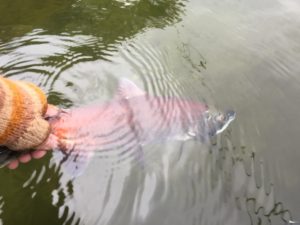
“The 2018 Fly Fishing List” so far:
- Brown Trout – Salmo trutta
- Brook Trout – Salvelinus fontinalis
- Rainbow Trout – Oncorhynchus mykiss
- Landlocked Atlantic Salmon – Salmo salar
- Creek Chub – Semotilus atromaculatus
- Northern Pike – Esox lucius
- Largemouth Bass – Micropterus salmoides
- Chain Pickerel – Esox niger
- Black Crappie – Poxomis nigromaculatis
- Bluegill – Lepomis macrochirus
- Bowfin – Amia calva
- Pumpkinseed – Lepomis gibbosus
- Common Shiner – Luxilus cornutus
- Redbreast Sunfish – Lepomis auritus
- Rock Bass – Ambloplites rupestris
- Green Sunfish – Lepomis cyanellus
- Smallmouth Bass – Micropterus dolomieu
- Blacknose Dace – Rhinichthys obtusus
- Kokanee Salmon – Oncorhynchus nerka
